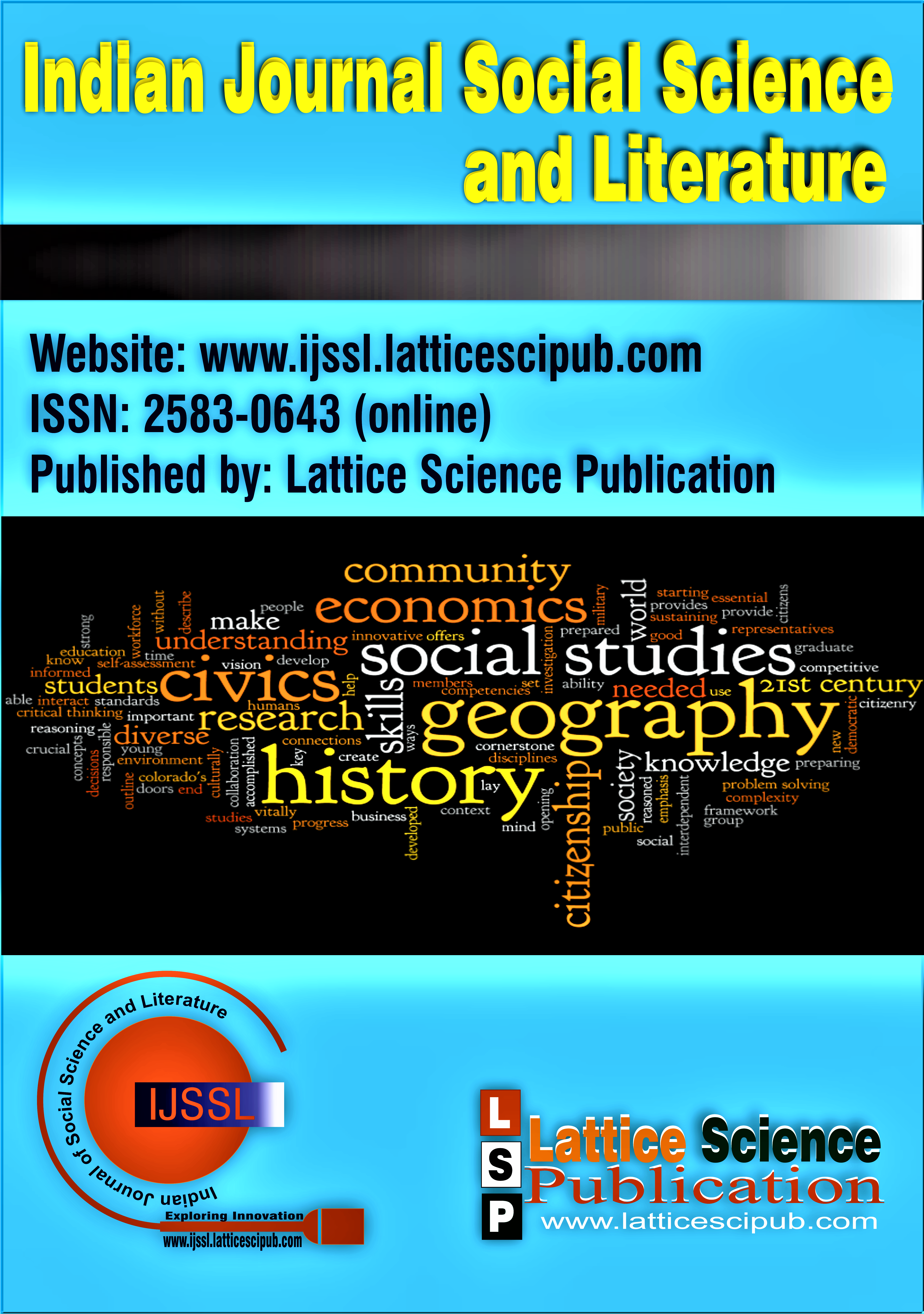Invisible Minorities - Queer Identities and Experiences in India
Main Article Content
Abstract
Interpretation of history is a fascinating tale with each scholar having their narratives and theorems. No matter how diverse their approaches may be most of them may agree that in each historical epoch, there have been social divisions that stratified people into majority and minority groups, one having power over the other (Marx and Engels, 1848,) [6]. However, the state has seldom ventured outside the realm of binary sexes to identify the oppression or emancipate the gender-deviant (LGBT+) individuals who from the beginning of modern civilization till date have been the invisible minority. Their invisibility has been a result of a saga of lies, lies about gender identity being a mental disorder, lies that gods will punish them in hell, lies that have been fed to the masses by elites in power to hold power; and the result of such lies have aggravated in forms of hate crimes, homicide,suicide and mass murders. Even though there have been certain reforms towards social modernization in the Global North that have provided for a more inclusive society for homosexuals, the condition remains intensely bitter if not uninhabitable in the Third World. Being on the traditional side of development, the Eastern mind is neither accustomed nor open to the Western form of progress and needs an endogenous change concerning the inclusion of non-traditional genders. This paper employs a case study approach to analyze the politics behind the status of the lesbian, gay, and bisexual population in Indian society. It aims at the identification of the causes and effects of oppression upon the esteemed community and deconstructs the myths and prejudices revolving, around that obstruct their right to live freely with pride and dignity.
Downloads
Article Details

This work is licensed under a Creative Commons Attribution-NonCommercial-NoDerivatives 4.0 International License.
How to Cite
References
ALBEE, G. W. (1972). Review of Homosexual: Oppression and Liberation. Contemporary Psychology: A Journal of Reviews, 17(6), 355–355. Doi: https://doi.org/10.1037/0010990
Butler, J. (2011). Gender Trouble. Routledge. Doi: https://doi.org/10.4324/9780203824979
DeFleur, M. L., & Goffman, E. (1964). Stigma: Notes on the Management of Spoiled Identity. Social Forces, 43(1), 127. Doi: https://doi.org/10.2307/2575995
B., G., & Lincoln, B. (2001). Theorizing Myth: Narrative, Ideology, and Scholarship. Journal of the American Oriental Society, 121(3), 529. Doi: https://doi.org/10.2307/606705
Marx, K. (1959). Economic and Philosophic Manuscripts of 1844. Economica, 26(104), 379. Doi: https://doi.org/10.2307/2550890
MANIFESTO OF THE COMMUNIST PARTY. (n.d.). The Communist Manifesto, 47–103. Doi: https://doi.org/10.2307/j.ctt1k85dmc.4
Mueller, G. E. (1958, June). The Hegel Legend of "Thesis-Antithesis-Synthesis". Retrieved from Jstor:. Doi: https://doi.org/10.2307/2708045
O'Shaughnessy. (2017). Ode to Leeds. Doi: https://doi.org/10.5040/9781350045897.00000003
Pattanaik, D. (2014). The Man Who Was a Woman and Other Queer Tales from Hindu Lore. Routledge. Doi: https://doi.org/10.4324/9781315801698
Eve Kosofsky Sedgwick’s Epistemology of the Closet. (2018). Macat Library. Doi: https://doi.org/10.4324/9781912453276
Derrida, J. (2020). Deconstruction in a Nutshell. Doi: https://doi.org/10.5422/fordham/9780823290284.001.0001
Wong, T. (2021, June 29). 377: The British colonial law that left an anti-LGBTQ legacy in Asia. Retrieved from BBC: Doi: https://doi.org/10.1093/ww/9780199540884.013.17734
Gopi, A., & S Nair, Dr. B. (2019). Mending the Scars of Colonialism: Expounding Klamath Tribe’s Efforts to Evolve Back through Theresa May’s Community Based Play Salmon is everything (2014). In International Journal of Recent Technology and Engineering (IJRTE) (Vol. 8, Issue 4, pp. 8128–8132). Doi: https://doi.org/10.35940/ijrte.D4206.118419
Mehra, M. (2020). Sikh Community as an Ethnic Minority in Patna, Bihar. In International Journal of Management and Humanities (Vol. 4, Issue 12, pp. 18–21). Doi: https://doi.org/10.35940/ijmh.L1089.0841220





